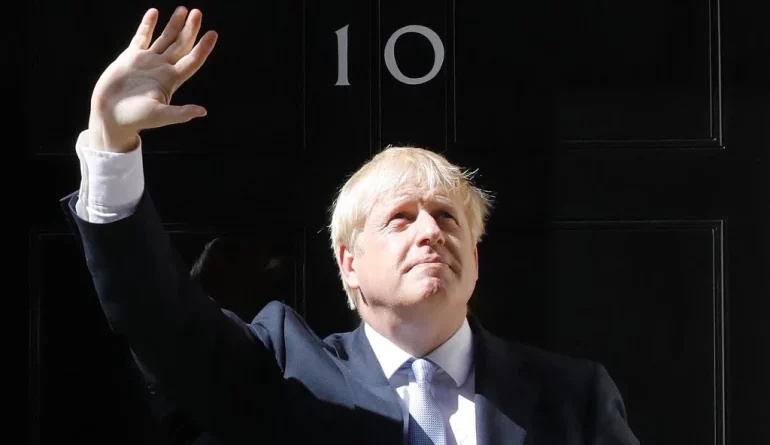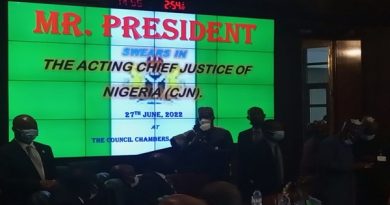British PM steps down but holding fort until a successor is chosen
British Prime Minister Boris Johnson resigns after a flood of ministerial resignations though acknowledged that “in politics, no one is remotely indispensable.”
Speaking outside 10 Downing Street, Johnson said he was “immensely proud of the achievements of this government,” from Brexit to steering the country through the pandemic, and leading the West in standing up to Russia’s invasion of Ukraine.
Johnson stepped down after cabinet ministers and dozens of MPs from his own Conservative Party quit their government roles in the last 24 hours.
His administration was dogged by months of scandals, including Johnson having been hit by allegations he failed to come clean about a senior Tory figure despite claims of sexual misconduct.
He will stay in office while the Conservative Party chooses a new leader, who will automatically become prime minister as well.
On Thursday, Labour leader Keir Starmer called for Johnson to go immediately, threatening a vote of no confidence if he stayed in office until a new leader was chosen.
“I’ve agreed with Sir Graham Brady, the chairman of our backbench MPs, that the process of choosing that new leader should begin now and the timetable will be announced next week. And I’ve today appointed a Cabinet to serve, as I will until a new leader is in place.”
Johnson had been defiant in his refusal to step down on Wednesday, despite finding himself in the dubious position of having the most ministerial resignations in a single day of any prime minister in British history.
The first resignations came on Tuesday night within minutes of each other as Chancellor of the Exchequer Rishi Sunak and health minister Sajid Javid released apparently coordinated statements saying they couldn’t continue to give Johnson their support.
Wednesday started with a slew of other resignations of less prominent MPs, and by mid-afternoon, there had been at least 26 in total: including the initial two cabinet ministers, ministers, principal private secretaries, trade envoys, and a vice-chair of the Conservative Party.
That total had climbed to 42 resignations by Wednesday evening.
One batch of ministers to quit didn’t even write individual letters, five of them just added their signatures to a group message for Johnson.
On Thursday there were further ministerial resignations, with new Education Secretary Michelle Donelan quitting just days into the job. Northern Ireland Secretary Brandon Lewis quit too, keeping the pressure on Johnson.
Then Nadhim Zahawi, appointed as Chancellor of the Exchequer just two days ago to replace Sunak, told Johnson he should quit.
what has triggered this latest political crisis in the UK for Johnson’s government – which seems to have lurched from one scandal to another in the last six months is how Downing Street handled the issue of Chris Pincher, an MP who quit his post after admitting to being drunk and groping two men in a private London club.
Johnson appointed him as deputy chief whip earlier this year, despite being aware of misconduct allegations against him.
Some MPs said they were frustrated that 10 Downing Street couldn’t get its story straight about what Boris Johnson knew, and when, and were undermined by doing media interviews to back up the PM’s position only to have it change within an hour or two.
An astonishing letter from the former head of Britain’s diplomatic service laid out very clearly that Johnson had known in far more detail than he’d admitted, historical complaints against Chris Pincher when Johnson was British foreign minister, and Pincher was a minister in the same department.
Minutes before the resignations of Javid and Sunak were announced, Johnson said Pincher should have been fired from the government after a previous 2019 incident.
Asked if it was an error to appoint Pincher to the government, Johnson said: “I think it was a mistake and I apologise for it. In hindsight, it was the wrong thing to do.”




